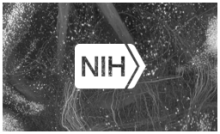
The NIH BRAIN Initiative has released three notices of funding opportunities for partnerships between clinical investigators and manufacturers of the latest-generation implantable stimulating and/or recording devices for clinical neuroscience research in humans.
A central focus of the BRAIN Initiative is development of technologies for recording and modulating neural circuits. Such technologies may be incorporated into devices to be implanted in the brain or spinal cord that can, for example, treat Parkinson’s disease or restore movement in the case of spinal cord injury.
NIH has released three notices of funding opportunities (NOFOs) for Fiscal Year 2016 to fund research partnerships between clinical investigators and manufacturers of latest-generation implantable stimulating and/or recording devices to conduct clinical research in the central nervous system (CNS). Development of implantable CNS devices for market-approved therapeutics can take many years and cost tens or even hundreds of millions of dollars, with much of the cost coming from stringent regulatory requirements for manufacturing and safety testing. The goal of the partnerships is to leverage the existing safety and regulatory data that is already available for manufacturers’ latest-generation devices, thereby reducing the time and cost for clinical researchers to explore new or improved therapies for neuropsychiatric disorders.
The first NOFO, BRAIN Initiative: Pre-Applications for Industry Partnerships to Provide Early Access to Devices for Stimulation and Recording in the Human Central Nervous System (X02) (PAR-15-345), has an application due date of November 11, 2015. This pre-application is encouraged for submission to the two NOFOs below, both of which have application due dates of April 26, 2016.
BRAIN Initiative: Next-Generation Invasive Devices for Recording and Modulation in the Human Central Nervous System (UG3/UH3) (RFA-NS-16-009). This NOFO is for phased awards that support pre-clinical (UG3 phase) safety and design research, followed by a small clinical (UH3 phase) study for recording and/or stimulating devices to treat nervous system disorders and better understand the human brain.
BRAIN Initiative: Clinical Studies to Advance Next-Generation Invasive Devices for Recording and Modulation in the Human Central Nervous System (UH3) (RFA-NS-16-010). The purpose of this NOFO is to support small clinical (UH3 phase) studies to obtain critical information necessary to advance recording and/or stimulating devices to treat central nervous system disorders and better understand the human brain.
In addition to these three announcements, NIH intends to release a pair of Small Business Innovation Research (SBIR) NOFOs, to broaden the opportunity for small businesses to participate in this program.
To streamline the legal and administrative process for agreements between academic institutions and commercial device manufacturers, which can in some cases take many months to negotiate, NIH has developed a template Collaborative Research Agreement (CRA) document in extensive consultation with researchers and representatives from government agencies, companies and academic research institution technology licensing and contract offices. Multiple companies have signed a Memorandum of Understanding with NIH indicating their willingness to participate in the program and to use the CRA as a common starting point for collaborations.
For details, see http://braininitiative.nih.gov/BRAIN_PPP/.
